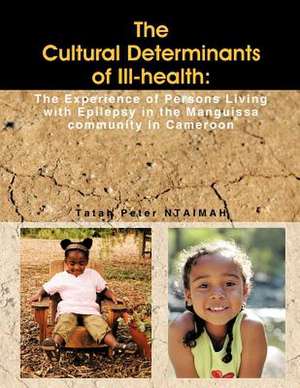The Cultural Determinants of Ill-Health
Autor Tatah Peter Ntaimahen Limba Engleză Paperback
Preț: 251.35 lei
Nou
Puncte Express: 377
Preț estimativ în valută:
48.10€ • 51.43$ • 40.10£
48.10€ • 51.43$ • 40.10£
Carte tipărită la comandă
Livrare economică 18 aprilie-02 mai
Preluare comenzi: 021 569.72.76
Specificații
ISBN-13: 9781467880343
ISBN-10: 1467880345
Pagini: 116
Dimensiuni: 216 x 279 x 8 mm
Greutate: 0.29 kg
ISBN-10: 1467880345
Pagini: 116
Dimensiuni: 216 x 279 x 8 mm
Greutate: 0.29 kg
